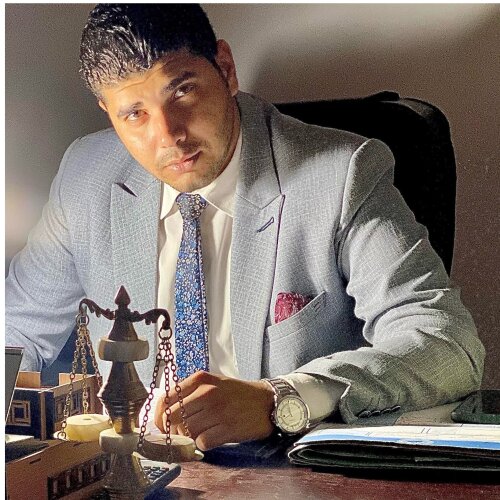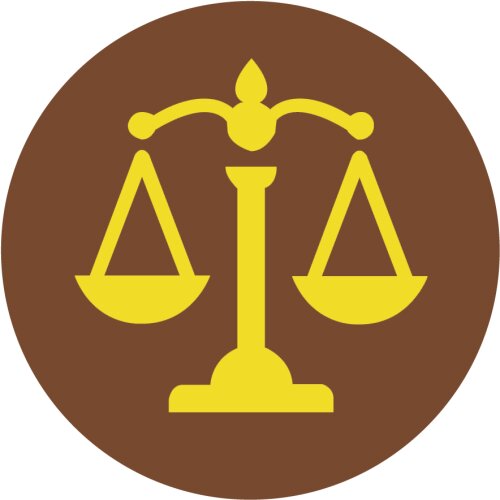Best Adoption Lawyers in Egypt
Share your needs with us, get contacted by law firms.
Free. Takes 2 min.
Free Guide to Hiring a Family Lawyer
Or refine your search by selecting a city:
List of the best lawyers in Egypt
About Adoption Law in Egypt
In Egypt, the concept of adoption as understood in many Western countries is largely influenced by Islamic law, which does not recognize traditional adoption. Instead, the concept similar to guardianship, known as "Kafala," is practiced. Under Kafala, a guardian can take responsibility for the care, education, and protection of a child in need without severing the legal ties between the child and their biological family. This system allows individuals to provide a loving home to a child while respecting the child's heritage and identity.
Why You May Need a Lawyer
There are several scenarios in which individuals might require legal assistance in matters related to adoption or Kafala in Egypt:
- Navigating the complex legal requirements and ensuring compliance with both religious and national laws.
- Assisting foreign nationals who wish to engage in Kafala arrangements in Egypt, which involves additional legal hurdles and international law compliance.
- Addressing disputes regarding guardianship, inheritance issues, or consent requirements that might arise between the biological family and the guardian.
- Helping manage inter-country adoption arrangements, ensuring proper documentation and adherence to international conventions.
- Providing guidance on the rights and responsibilities of guardians and the legal status of the child under Kafala.
Local Laws Overview
The laws surrounding Kafala in Egypt are primarily guided by Islamic principles and family law. Some key aspects include:
- The guardian (Kafil) must meet specific eligibility criteria, such as being of good moral character, financially stable, and able to provide for the child.
- Kafala does not terminate the biological parents' legal relationship with the child. The child retains their original family name and inheritance rights.
- Approval from relevant governmental bodies, such as the Ministry of Social Solidarity, is required to formalize a Kafala arrangement.
- Guardianship arrangements may involve home assessments and periodic social worker evaluations to ensure the child's welfare.
- Adopting under Kafala may affect a child's ability to travel outside Egypt, especially concerning visa and immigration status.
Frequently Asked Questions
What is the main difference between adoption and Kafala in Egypt?
Adoption severs legal ties with the biological family, whereas Kafala maintains the child's family identity while providing guardianship.
Can foreigners act as guardians under Kafala in Egypt?
Yes, foreigners can become guardians under Kafala, but the process involves additional legal steps and adherence to international laws and agreements.
How does Kafala impact a child's inheritance rights?
A child under Kafala retains inheritance rights from their biological family but does not automatically inherit from the guardian unless specified in the guardian's will.
Is it possible to change a child's last name under Kafala?
No, a child under Kafala retains their biological family name to preserve their heritage and identity.
Do I need a lawyer to pursue Kafala in Egypt?
While it is not legally required, having a lawyer can help navigate the complex process and ensure compliance with all legal requirements.
What governmental body oversees Kafala arrangements?
The Ministry of Social Solidarity is the primary governmental body responsible for overseeing Kafala arrangements in Egypt.
Can a Kafala arrangement be terminated?
Yes, a Kafala arrangement can be revoked if it's determined that the guardian is not fulfilling their responsibilities or if it is in the child's best interest.
Are there any age restrictions for becoming a guardian under Kafala?
Guardians are typically required to be adults of a certain age, often at least 25 years old, but can vary based on local laws and regulations.
How long does the Kafala process usually take?
The duration can vary widely depending on individual circumstances, legal complexities, and compliance with procedural requirements.
Does Kafala offer the child Egyptian nationality?
No, Kafala does not confer Egyptian nationality to the child, as it does not alter the child's legal status or family lineage.
Additional Resources
For those seeking more information or assistance with Kafala in Egypt, consider reaching out to the following resources:
- The Ministry of Social Solidarity for guidance on regulations and procedures.
- Legal aid organizations that specialize in family law and Kafala arrangements.
- Embassies and consulates for foreign nationals, which may offer additional resources and support.
- Non-governmental organizations (NGOs) focused on child welfare and adoption-related services.
Next Steps
If you need legal assistance with adoption or Kafala in Egypt, consider taking the following steps:
- Consult with a lawyer who specializes in family law and has experience with Kafala arrangements.
- Gather necessary documentation, such as identification, financial statements, and any required government forms.
- Contact the Ministry of Social Solidarity for an initial consultation and guidance on your specific situation.
- Explore informational resources and support networks for further understanding and assistance.
Lawzana helps you find the best lawyers and law firms in Egypt through a curated and pre-screened list of qualified legal professionals. Our platform offers rankings and detailed profiles of attorneys and law firms, allowing you to compare based on practice areas, including Adoption, experience, and client feedback.
Each profile includes a description of the firm's areas of practice, client reviews, team members and partners, year of establishment, spoken languages, office locations, contact information, social media presence, and any published articles or resources. Most firms on our platform speak English and are experienced in both local and international legal matters.
Get a quote from top-rated law firms in Egypt — quickly, securely, and without unnecessary hassle.
Disclaimer:
The information provided on this page is for general informational purposes only and does not constitute legal advice. While we strive to ensure the accuracy and relevance of the content, legal information may change over time, and interpretations of the law can vary. You should always consult with a qualified legal professional for advice specific to your situation.
We disclaim all liability for actions taken or not taken based on the content of this page. If you believe any information is incorrect or outdated, please contact us, and we will review and update it where appropriate.
Browse adoption law firms by city in Egypt
Refine your search by selecting a city.
















